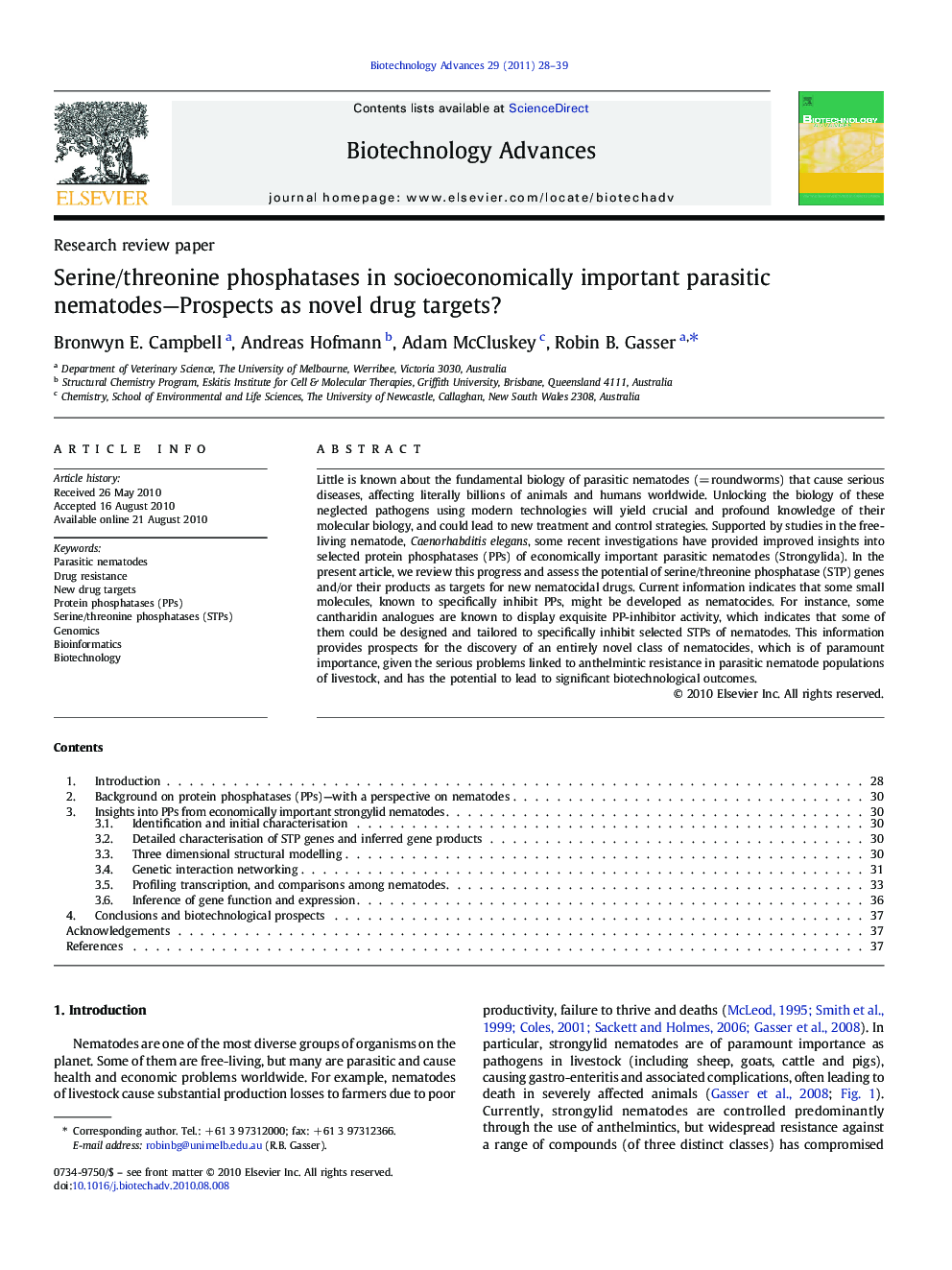| Article ID | Journal | Published Year | Pages | File Type |
|---|---|---|---|---|
| 14363 | Biotechnology Advances | 2011 | 12 Pages |
Little is known about the fundamental biology of parasitic nematodes (= roundworms) that cause serious diseases, affecting literally billions of animals and humans worldwide. Unlocking the biology of these neglected pathogens using modern technologies will yield crucial and profound knowledge of their molecular biology, and could lead to new treatment and control strategies. Supported by studies in the free-living nematode, Caenorhabditis elegans, some recent investigations have provided improved insights into selected protein phosphatases (PPs) of economically important parasitic nematodes (Strongylida). In the present article, we review this progress and assess the potential of serine/threonine phosphatase (STP) genes and/or their products as targets for new nematocidal drugs. Current information indicates that some small molecules, known to specifically inhibit PPs, might be developed as nematocides. For instance, some cantharidin analogues are known to display exquisite PP-inhibitor activity, which indicates that some of them could be designed and tailored to specifically inhibit selected STPs of nematodes. This information provides prospects for the discovery of an entirely novel class of nematocides, which is of paramount importance, given the serious problems linked to anthelmintic resistance in parasitic nematode populations of livestock, and has the potential to lead to significant biotechnological outcomes.
